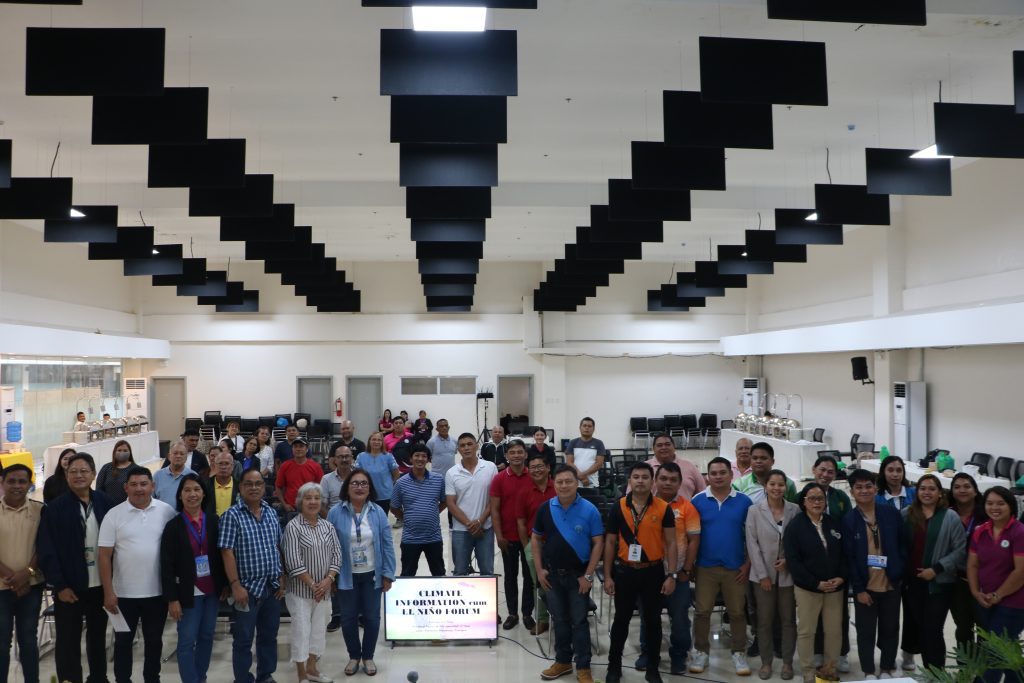
Agri 10 apprises Camiguin agri stakeholders on info on climate patterns and forecasts affecting the agri fishery sector of said province.
MAMBAJAO, CAMIGUIN – In fostering resilience and preparedness within communities vulnerable to the impacts of El Niño, the Department of Agriculture – Regional Field Office 10 (DA-RFO 10) through the Climate and Environment Risk Reduction Management Unit (CERRMU) conducted a Climate Information Caravan cum El Niño forum on February 6-7, in Camiguin province.
Per the report, the outlook for areas’ potential for dry, dry spells and drought conditions shows that Camiguin is likely to experience dry conditions by the end of February and is predicted to shift to drought conditions by the end of May 2024, based on the Department of Science and Technology (DOST) PAGASA data.
Around 77 participants, coming from the different government sectors and some farmer-leaders of Camiguin, convened to learn valuable information on climate patterns and forecasts affecting the agricultural and fishery sectors of the province.
The island of Camiguin is a farming and fishing province with a rich agricultural heritage and is known for its fertile volcanic soil, favorable climate, and diverse agricultural practices that primarily focus on the cultivation of crops such as rice, corn, coconut, various fruits and vegetables, and fisheries.
DA-10 Regional Executive Director Carlene C. Collado said the activity aims to provide invaluable insights, knowledge about climate conditions, and information on the El Niño phenomenon and its environmental impact.
Meanwhile, Camiguin Provincial Agriculturist Aida G. Chan conveyed her appreciation to everyone in attendance for their full cooperation at the event.
“I’m thankful to DA-10, especially to Dir. Collado for granting our request to have this activity [Climate Info Car Cum El Niño Forum], as this would greatly help our sector leaders and farmers to better understand the effect of the El Niño phenomenon and its mitigation measures needed concerning the agricultural sector in our province,” she said.
Significant to its role in providing information, DA-10 Disaster Risk Reduction Management (DRRM) alternate focal person Gay Nanette M. Aleria added that the activity serves as a platform for raising awareness about the importance of climate change adaptation and the need for collective action to address the challenges posed by El Niño.
Accordingly, the agency prioritized the implementation of water management strategies and other related interventions, continuous monitoring and coordination with PAGASA regarding climate forecast, enhancement of the DA-El Nino mitigation and action plan, maximizing and optimizing production in non-threatened areas, and rehabilitation of affected areas.
Lastly, strengthened collaboration with local authorities, non-governmental organizations, and other stakeholders to address the anticipated changes in precipitation patterns during El Niño.
Also presented are the El Niño action plans of DOST PAGASA, Bureau of Fisheries and Aquatic Resources (BFAR), National Food Authority (NFA), Philippine Crop Insurance, Corp. (PCIC), and the National Irrigation Administration (NIA).# (RDME)
